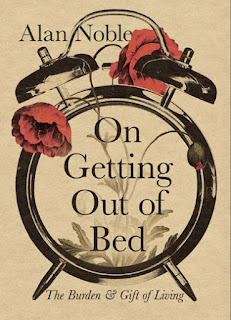"The Relevance of Religion" by John Danforth. A Review.
 The Relevance of Religion: How Faithful People Can Change Politics by John Danforth
The Relevance of Religion: How Faithful People Can Change Politics by John DanforthMy rating: 5 of 5 stars
Incivility, with all of its rudeness in personal and political discourse and discourtesy on social and audio-visual media, seem to have confiscated and impounded our shared psyche as a nation. Simultaneously, into this caustic environment is being poured a highly-flammable fuel that explodes and melts down discussion and disagreement, and dissolves any hope of reaching the common good. The Ninth Commandment clearly announces that we’re not to bear false witness against our neighbors. And yet people of strong Christian convictions violate the Ninth Commandment minute-by-minute on Facebook, via email and by means of other outlets. You see it when we post and publicize scathing, often half-truth fabrications against this or that Governmental office holder and others. To propose a remedy, John Danforth, Lawyer, Episcopal priest, one-time Republican Senator for Missouri and United States Representative to the United Nations, presents his 288 page hardback, “The Relevance of Religion: How People of Faith Can Change Politics.”
The main premise of “The Relevance of Religion” is that people of faith have an ability and a responsibility to promote reconciliation and restore sensibility to the country and the political process. This point is clearly displayed in the title of the longest, central chapter of the book, “The Making of Virtuous Citizens.” This 90 page section works through the formation of virtuous citizens, by religious people putting into practice what the author thinks is one of the central tenets of most religions: love God above all things, and your neighbors. This theme permeates the whole book through multiple examples and illustrations.
Danforth believes that our national problems, as well as why Government doesn’t work any longer, has to do with the elevation of politics as ultimate (breaking the First and Second Commandments); the shift from seeking the common good to self-interests (breach of the second greatest commandment); and the advancement of instant-offendedness and offensiveness and the loss of humor (violation of the Ninth Commandment). For example, the author notes that religion “pulls us toward virtue, but modern campaign techniques move us ever further away from the common good and ever closer to concern for self and little else” (207).
In “The Relevance of Religion” the author lays out several remedial observations and suggestions. These include, but are not limited to, the following: (1) the need for compromise, something that is doable if politics is returned to its secondary place and no longer allowed to usurp ultimacy (244), and love and respect, even for adversaries, is restored (246). (2) For religious people to change the tone of political discourse by stepping away from relentless personal attacks, and to hold our politicians to the same standard; for people to come to recognize that “there is a big difference between opposition and abuse” (211). (3) For religious people to help raise “our sights above the interests of self and group to concern for the common good” (244-5). (4) Restoration of the communal aspects of religion since isolation is becoming more pronounced in America, and we are turning more into a collection of peoples rather than a people, and so “religion binds us to each other and to the whole” (245-6). Danforth offers several proposals of how these could potentially all work out, some of which seemed to me to be tenable, and some a little more controversial.
“The Relevance of Religion” is an easy book to read. No matter what one’s political party or position, if the book is read with an open ear, it will be a profitable endeavor. And especially if Christians and other religious people will set to the side their particular interests and pay attention to the major themes of the book, on the one hand you will walk away chastened, but on the other hand you will walk forward with a better perspective on what our responsibilities are, because people of faith “have a responsibility to advocate the causes of those who do not hire lobbyists and to advance the common good (238). Though I didn’t agree with every recommendation or idea the author put forward, nonetheless I happily, and urgently, recommend the book.
View all my reviews



Comments